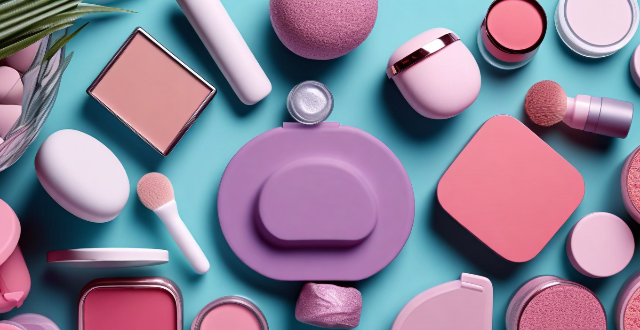This article explores the impact of social media on cosmetics advertising, highlighting key trends such as influencer marketing, targeted advertising, user-generated content, and real-time engagement. Social media platforms have revolutionized the way cosmetics companies advertise their products, allowing them to reach a wider audience through trusted sources like influencers, create personalized ad campaigns using user data, encourage customer loyalty through UGC, and engage with customers in real-time. These tools have made cosmetics advertising more effective and efficient, shaping the future of the industry.

The Impact of Social Media on Cosmetics Advertising
In recent years, social media has revolutionized the way cosmetics companies advertise their products. From influencer marketing to targeted advertising, social media platforms have become a powerful tool for reaching consumers and driving sales. In this article, we will explore how social media has changed the landscape of cosmetics advertising and discuss some of the key trends that are shaping the industry.
The Rise of Influencer Marketing
One of the most significant changes brought about by social media is the rise of influencer marketing. Influencers are individuals with large followings on social media who have the power to influence their followers' purchasing decisions. Cosmetics companies have recognized the potential of partnering with influencers to promote their products, and as a result, influencer marketing has become a staple of cosmetics advertising.
Key Points:
- Influencer marketing allows cosmetics companies to reach a wider audience through trusted sources.
- Influencers can provide authentic reviews and demonstrations of products, which can be more effective than traditional advertising methods.
- Partnering with influencers can help cosmetics companies build brand awareness and credibility.
Targeted Advertising
Another way social media has changed cosmetics advertising is through targeted advertising. Social media platforms collect vast amounts of data on their users, including their interests, demographics, and online behavior. This data allows cosmetics companies to create highly targeted ads that are more likely to resonate with their intended audience.
Key Points:
- Targeted advertising ensures that cosmetics companies are reaching the right people with their messages.
- By analyzing user data, cosmetics companies can create personalized ad campaigns that are more likely to convert into sales.
- Targeted advertising can help cosmetics companies save money by only showing ads to people who are likely to be interested in their products.
User-Generated Content
Social media has also given rise to user-generated content (UGC) as a form of cosmetics advertising. UGC refers to any content created by users, such as reviews, photos, and videos showcasing their experiences with cosmetics products. This type of content is often seen as more authentic and trustworthy than traditional advertising, making it an effective way for cosmetics companies to promote their products.
Key Points:
- UGC provides social proof and helps build trust among potential customers.
- Encouraging customers to share their experiences with cosmetics products can lead to increased brand loyalty and customer retention.
- UGC can be used to showcase the effectiveness of cosmetics products in real-life situations, providing valuable social proof for potential customers.
Real-Time Engagement
Finally, social media has made it possible for cosmetics companies to engage with their customers in real-time. This means that companies can respond quickly to customer questions, feedback, and concerns, creating a more personalized experience for customers and fostering stronger relationships between brands and consumers.
Key Points:
- Real-time engagement allows cosmetics companies to address customer issues promptly, improving customer satisfaction and loyalty.
- By engaging with customers on social media, cosmetics companies can gather valuable insights into consumer preferences and trends.
- Real-time engagement can help cosmetics companies build a community around their brand, increasing brand awareness and customer loyalty.
In conclusion, social media has had a profound impact on the landscape of cosmetics advertising. From influencer marketing to targeted advertising, user-generated content, and real-time engagement, cosmetics companies have numerous tools available to them on social media platforms that were not possible just a few years ago. As technology continues to evolve, it will be interesting to see how these trends continue to shape the future of cosmetics advertising.